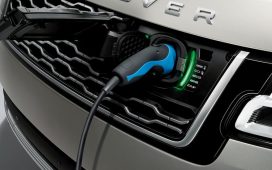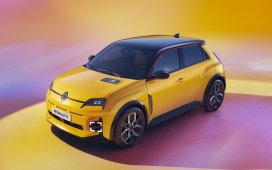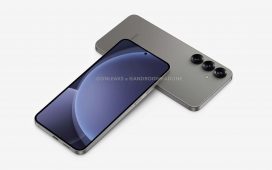The electric vehicle market has had its ups and downs as of late. I mean, it seems like every other day we’re hearing about major industry players walking back key EV targets and deadlines. But what if I told you that it wasn’t just EVs that were hurting right now?
Welcome back to Critical Materials, your daily roundup for all things EV and automotive tech. Today, we’re chatting about the auto industry slowdown, Tesla beating another lawsuit, and ultra-luxury players being just plain weird with EVs. Let’s jump in.
30%: The ‘EV Slowdown’ Comes For Gas Cars

InsideEVs
The truth is that EV sales aren’t as apocalyptic as other headlines might have you believe. Many brands are still posting record electric sales every month or quarter. But they aren’t taking off as quickly as expected, and now, one major story we’re seeing from Q3’s sales data is that the entire car sector—including gas cars—is hurting.
After months of high interest rates, price hikes, and pent-up buying following COVID-related inventory shortages, buyers have finally had it. The “slowdown” is here for gas cars now, too.
The big part of the whole ordeal is simple economics: cars are more expensive than ever. Between rising material costs, production issues, supply chain problems, and lasting difficulties still rearing their heads from chip shortages over the last few years, car prices have continued to climb.
Don’t believe me? Just look at the Ford Maverick which which launched as a 2022 model $19,995 and has since risen to $26,295—that’s 31% in just three short years.
Despite the rise in prices, data from J.D. Power shows new vehicle sale prices are down 3% year-over-year to $44,467. But that’s still up in the grand scheme of things. At the end of 2019, pre-Covid, that same average transaction price was $34,600. That’s an increase of nearly 29%, outpacing inflation. And, despite the average transaction price being lower, the average monthly payment has slightly increased to $734. Ouch.
So now after months of raking in record profits, automakers are now back to offering promotional interest, discounts, and some good ol’ fashioned cash on the hood to sweeten the buying deal. And that was working… until it wasn’t.
Jessica Caldwell, Edmunds‘ head of insights, called today’s market “pretty unaffordable.”
“Q3 was unfortunately the same old story as the first half of 2024 in terms of auto financing conditions: Car shoppers found little relief from the elevated interest rates and high prices, which in turn hindered new-vehicle sales growth,” Caldwell said. “The Fed’s decision to cut rates was a welcome update at the end of the quarter but, on its own, is unlikely to dramatically change the financial landscape for car buyers.”
Another bump in the road is the upcoming presidential election. Analysts are holding up hope that once political uncertainty becomes more stable, so will the car market. Buyers could be holding off on bit-ticket purchasing decisions until they feel a bit more confident in the direction of the country.
For example, former U.S. President Donald Trump promised to nuke EV subsidies if he were re-elected to the Oval Office. This freaked out automakers. Some increased spending to lobby for subsidies—Hyundai in particular increased its contributions by 150%. Others put off making decisions to build factories in adjoining countries. And if huge corporations are freaking out over politics, it doesn’t instill confidence in buyers.
There is some light at the end of the tunnel, though. Analysts expect that the industry will have a pick up following the election. Assuming things follow the status quo, leaving EV subsidies intact and interest rates continuing to fall, buyers may show signs of renewed interest in the auto market next year. But given that the first quarter is usually one of the slowest, automakers could be in for a rough couple of months.
60%: Judge Finds Tesla, Musk Found Not Liable Over High-Flying FSD Claims

InsideEVs
Today on the latest episode of never-ending Tesla drama: another lawsuit. This time, it’s good news for the automaker and CEO Elon Musk.
Remember that lawsuit lodged against Tesla’s rather ambitious Full Self-Driving claims? I know, you’re probably thinking “which one”—that’s okay. This particular one is Lamontagne vs Tesla, an investor suit against the automaker claiming that it made misleading claims about its Full Self-Driving software, such as drivers being able to “go to sleep” while FSD shuttles them to their destination by 2020. Spoiler: you still can’t.
Yesterday, the judge presiding in the case ruled that Musk’s (and Tesla’s) statements on FSD weren’t intentionally deceiving investors, but were instead simply forward-looking—perhaps even overly-optimistic—statements of what Tesla expected FSD to become. The timeline is just significantly off.
“Plaintiffs fail to connect Musk’s hands-on management with any information that he allegedly learned rendering his statements false or misleading,” wrote the judge in the court’s decision, suggesting that Musk didn’t technically know what he was saying couldn’t (or wouldn’t) happen in the time period he suggested to investors.
Investors have until the end of October to appeal the decision.
Here’s the thing—just because Tesla dodge this bullet doesn’t mean it’s out of legal hot water just yet. The SEC has a separate ongoing probe into whether or not Tesla made misleading claims to the public over similar FSD-related claims. It also has an ongoing probe into its Autopilot software from the National Highway Traffic Safety Administration, and a completely separate proposed civil class-action lawsuit concerning alleged misleading marketing for Full Self-Driving.
Phew.
This isn’t the last time we’re going to hear about Tesla being involved in an Autopilot or Full Self-Driving related lawsuit. And with a robotaxi reveal right around the corner, who’s to say what the next Tesla claim will be? It’s one thing to make forward-looking statements, it’s another to unleash a swarm of self-driving liabilities onto the public. Just ask Cruise.
90%: Bentley and Rolls-Royce Are Being Really Weird About Electrification

Once upon a time, in the not-so-distant past, owning an electric car was a thing of status. You couldn’t turn a corner in Hollywood and not see somebody driving a Tesla, for example. But that never really caught on with ultra-luxury marques like Bentley and Rolls-Royce. It turns out those brands aren’t really in a rush to move from loud-roaring V12s to mouselike electric motors, and its customers might not be either.
Bentley’s new CEO, Frank-Steffen Walliser, says that its customers are rejecting the move to electrification. In fact, he claims that customers are only considering ultra-luxury EVs with combustion engines and are turning their nose at the notion of batteries.
“What we see in the luxury market right now [is that] people reject electric cars. They consider luxury cars only with the combustion engine,” said Walliser in an interview with Car and Driver. “We cannot offer two cars where one is electric and one gas, in the same segment. This does not work just by investment and return on investment. So we have to find something else.”
That something Bentley is talking about? Yeah, it’s plug-in hybrids. The CEO called the approach a “novel bridging technology” that acts as a stopgap between gas-powered cars and full-blown electrification.
It may seem odd the ultra-luxury segment is willing to spring for a compromising technology like hybridization. Maybe it’s a thing of convenience, like not having to wait around at a charger with the rest of the peasants.
There’s another brand out there with a conflicting opinion on the viability of hybrids, and its name is Rolls-Royce.
Rolls also has a new CEO, Chris Brownridge. In a recent interview with Automotive News, Brownridge completely shunned the idea of hybrids altogether:
“A hybrid is not something we would envisage,” said the CEO. He claims that a hybrid would compromise the brand’s “waftability and effortless power.”
And that term—waftability—is a neologism made up by the brand which former CEO Tom Purves used to describe Rolls-Royce’s ability to offer “quiet perfection, bags of torque, [and] accelerating quickly without fuss.” Sounds a lot like a hybrid to me.
But Rolls isn’t pooh-poohing electrification altogether. The brand even said that it would plan to have an all-electric lineup by the top of the decade, and combustion engines being retired by 2031. Bold goal, but perhaps that gradual transition from gasoline to hybrid to electric is simply something the brand doesn’t want to go through. After all, Brownridge says that it has the ability to do it—but ultimately it will be “led by its clients” on whether or not that happens.
“Different regions of the world will progress in terms of their powertrain at different rates,” said Brownridge. “So it’s important that we can accommodate that.”
It’s weird to see two brands competing in such a similar, niche market have such conflicting opinions about drivetrain tech—especially ones that are known for their monstrous engines with gobs of displacement. They can agree on gas, but not on how to approach EVs.
It also speaks to the conflicting approach between mainstream auto ownership and those posh buyers simply out for opulence.
So will both brands (and their customers) ultimately be pulled into the future kicking and screaming? Or will EV tech mature quickly enough to convince buyers that battery-power is the future? I guess we’ll see.
100%: Are You Holding Off On Buying A New Car?

InsideEVs
Auto sales are down right now, that much we already know. It’s not just EVs, either, it’s across the board. ICE, hybrids, plug-ins—you name it. Call it looming signs of a recession, or just general market uncertainty, people are holding off on buying new cars.
Personally, I’m holding off for my Rivian R2 reservation. It’s one of the many EVs coming to market over the next few years that I’m particularly excited about (there’s also the R3X, which I would drop the R2 in a heartbeat for).
Are you one of those people shopping around for a new car? And, if so, are you planning on buying soon or holding off for some particular reason? Let me know in the comments.








